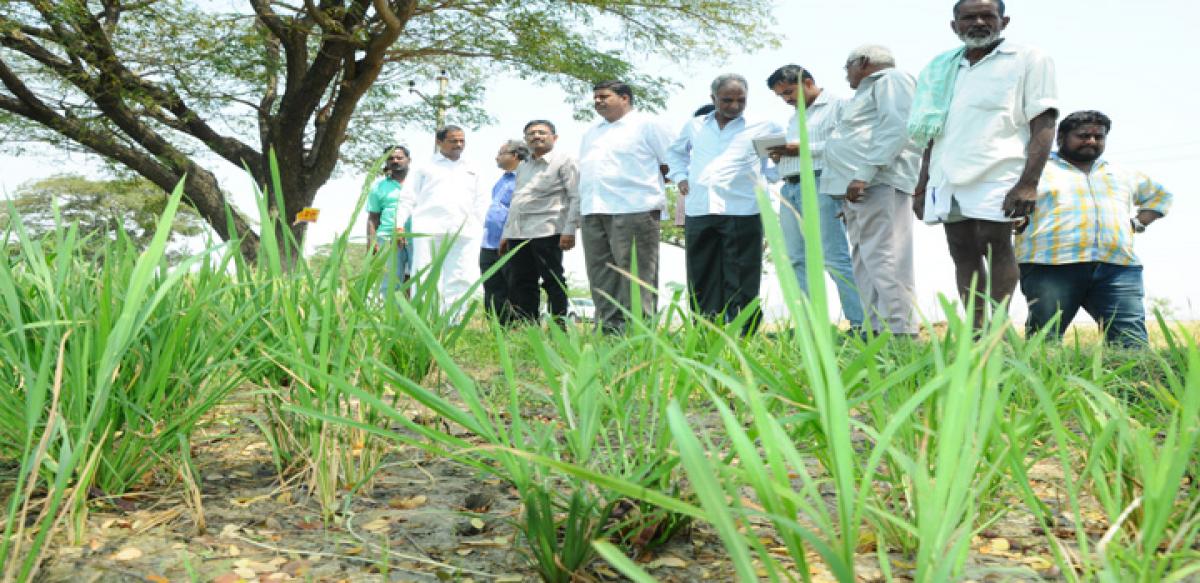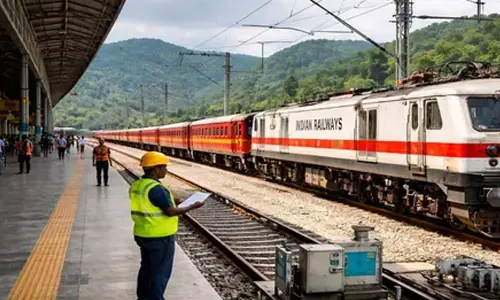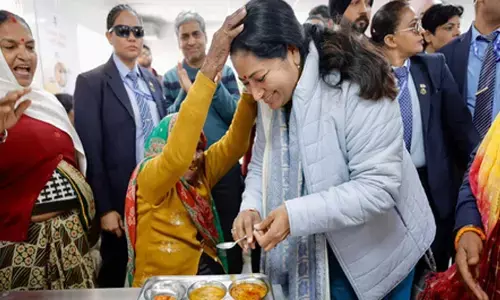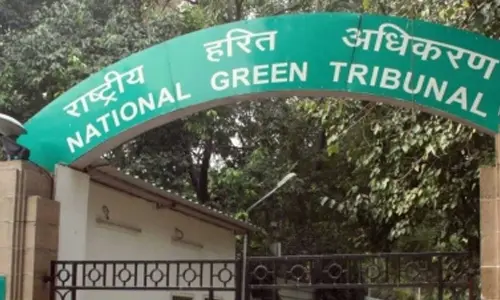Farmers turn hamalis

The adage goes, when tillage begins, other arts follow. The farmers, therefore, are the founders of human civilization. But, nature’s fury and official apathy make farmer an endangered species. E Laxmaiah is a farmer owning 18 acres of land in Nagasala village in Jadcherla Mandal of Mahbubnagar district. He can get over rupees three crores by selling land. Yet he works in a private financial firm
Telangana Assembly to debate drought tomorrow
The adage goes, when tillage begins, other arts follow. The farmers, therefore, are the founders of human civilization. But, nature’s fury and official apathy make farmer an endangered species. E Laxmaiah is a farmer owning 18 acres of land in Nagasala village in Jadcherla Mandal of Mahbubnagar district. He can get over rupees three crores by selling land. Yet he works in a private financial firm for a paltry salary of just Rs. 4000.It’s unbelievable but certainly true.
Why this karodpati is condemned to lead such a humble life. This is what he says “If I sell my land, I may get money. But, what should I do I have valuable assets. But no disposable income as crops has completely dried up due to drought. I should leave the land for my children. “, adds Laxmaiah.
The real estate boom has shot up the land prices but, nature made agriculture unremunerative. Daily income is a challenge for even big land owners in this perennially drought stricken Mahboobnagar district. This is not the only example. Farmers of this area, says M Dipla Naik, a trade unionist, are working as hamalis for uploading and unloading cargo at Pharma companies in the Polepally Special Economic Zone near Jadcherla.
The NAREGA is supposed to come to the rescue of farmers and farm labourers in the wake of drought. But, the situation on the ground is otherwise. Panjari Krishaniah, a farmer turned mason said, “The NAREGA works are not adequate. Though they give us a target work of Rs 150, but we could complete only Rs. 60 to 80 a day “
Dairy is supposed to provide relief to the farm family when crops fail. But, the cattle rearing are making farmers debt ridden. The drought conditions ruined the income from both the crops and the live stock resulting in mounting debts. “No rains. Cotton, maize , paddy ,crops in Kharif are lost. Yield has fallen to just one to two quintals per acre. Maize crop dried at flowering stages itself. “ said Meesala Hussain who invested Rs. 70,000 per acre but got a meager return of only Rs. 5000 to 6000.
As agriculture becomes a negative economic proposition, more and more farmers are feeding their families through labour work in local industrial units. One such farmer Maddireddy Rami Reddy who now works as a daily labourer in a local rice mill says , “With the supply of labourers increased, the wages are also falling. Number of hours of work is increasing. We cannot bargain. “ . When there was good season, we used to take our paddy to these rice mills for milling. Now we are engaged in loading and unloading work, adds, Rami Reddy with tears in his eyes.
Cattle rearing have also become a costly affair. Yagavanavi Govardan Yadav whose five inch borewell dried up said that fodder cost has substantially gone up due to its non availability. The milk yield declined to five litres from 15 to 20 litres. The milk output registered a steep fall due to non availability of quality fodder in adequate quantities and even drinking water. When human beings are finding it difficult to fetch a pale of water, imagine the fate of animals.
Y Narendra Yadav said that the cost of fodder has increased by five to six times in the recent past. “We purchased the cattle for Rs. 70,000. If we sell now, we will not even get Rs. 20,000 .We can neither sell nor feed cattle. “he remarked. Abudul Samad who has ten cattle said that he has to raise loans even to buy fodder. Cattle getting sick and thin due to lack of water and fodder, added Samad.













